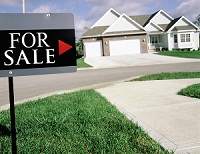 “Mailbox Millionaires?” Sure you’ll get checks in the mail every month for your property investment, but like anything, it may take some time to bolster the revenues. Buying income property can be pretty straight forward if you ask the right questions and do the homework. The goal is to buy income producing rental property that will provide a steady income stream after operating expenses and debt service. For now we’ll focus on multi-family, or apartment, income properties. Most investors start small with a duplex or a fourplex. After mastering the fundamentals of tenant selection and expense management, an investor can start ‘trading up’ to larger buildings and larger revenues. Let’s look at how to buy these properties- and in a way that makes dollars and sense.
“Mailbox Millionaires?” Sure you’ll get checks in the mail every month for your property investment, but like anything, it may take some time to bolster the revenues. Buying income property can be pretty straight forward if you ask the right questions and do the homework. The goal is to buy income producing rental property that will provide a steady income stream after operating expenses and debt service. For now we’ll focus on multi-family, or apartment, income properties. Most investors start small with a duplex or a fourplex. After mastering the fundamentals of tenant selection and expense management, an investor can start ‘trading up’ to larger buildings and larger revenues. Let’s look at how to buy these properties- and in a way that makes dollars and sense.
Ask the Experts: commercial agents, lenders and property managers.
Finding the right agent who knows the market and can present you with opportunities that are worthy- this is critical. Clarify the area(s) you seek, the size/price you seek and your preferences. Then ask the agent to locate and present you with suitable properties. If he shows you only his or her listings, he is not interested in your needs. Try to find properties that, with a little TLC, can become nicer and more tenant friendly- we call these properties “investments with upside.” Upside can be defined as ‘room to add value and likely raise rents’. A simple rule to keep in mind: ‘the nicer the area the lower the cash flow.’ When considering apartment investments consider the neighborhood, proximity to employment, area retail, access to public transportation, etc. Also have your agent do a “rent survey” around the building you are considering so you know how much room there may be in rental ‘upside.’
Just like with getting a home loan, you’ll want to get with a lender to know your limits. Don’t be afraid to ask the lender how many apartment loans he or she has done- or 4-plex loans. This is critical. Do not allow his or her enthusiasm to persuade you- ask about track record and recent closings.  Without proper financing in place you won’t get the deal. Most investors these days keep leverage in check after seeing what over-leveraging can do in a market downturn. Using 25% – 40% down is appropriate. The bigger the down payment, the better the cash flow. Whatever your down payment, set aside another 10% of the total purchase price for maintenance, repairs and reserves.
Without proper financing in place you won’t get the deal. Most investors these days keep leverage in check after seeing what over-leveraging can do in a market downturn. Using 25% – 40% down is appropriate. The bigger the down payment, the better the cash flow. Whatever your down payment, set aside another 10% of the total purchase price for maintenance, repairs and reserves.
Starting small often means making repairs and collecting the rents yourself. This is invaluable experience and insight into the workings of your apartment business. But many do not have the time or ability to self-manage their investments, or the larger properties can become overwhelming. Enter the property manager. Just as with finding the right agent and lender, the right property manager is critical. When interviewing for property management focus on how repairs and maintenance are handled, how collections are handled and how advertising and promotion is achieved. While fees are important, it is more important to focus on how they achieve the results (your cash flow), and not so much on what they charge.

visit klcommercialgroup.com for more information

















